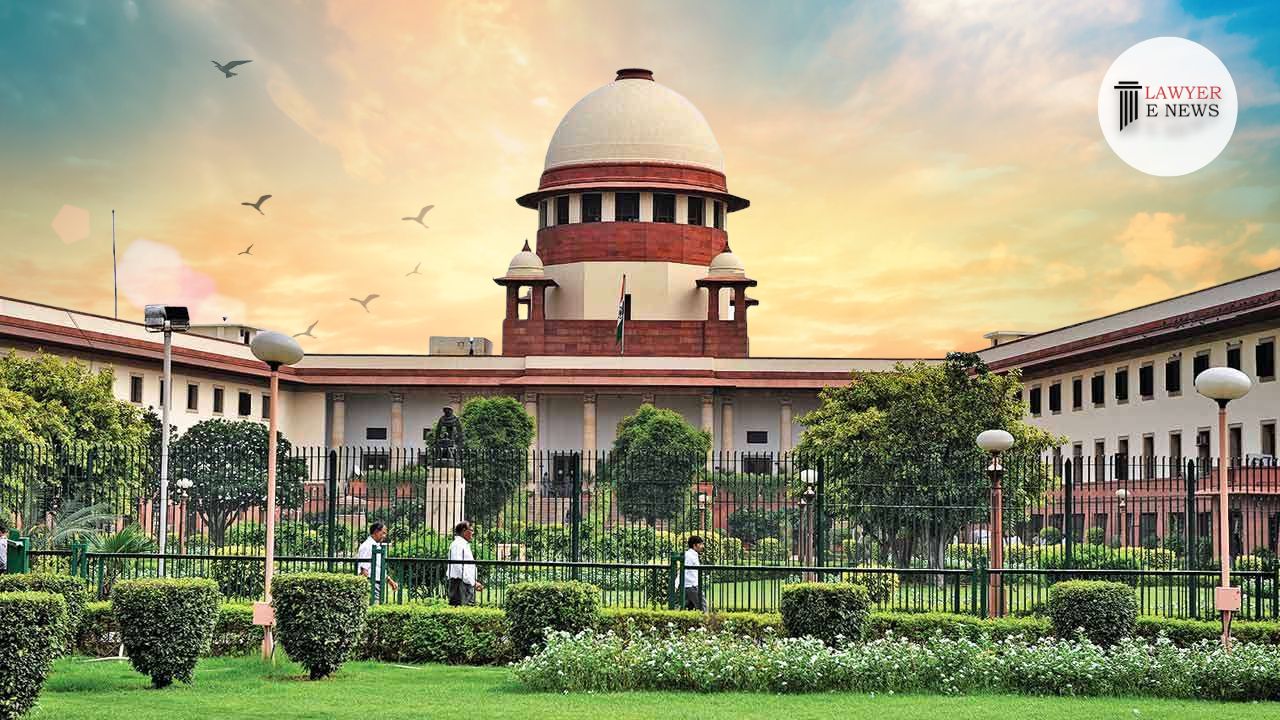-
by sayum
14 February 2026 2:22 PM



The Supreme Court has ordered the refund of stamp duty to Bano Saiyed Parwaz, an appellant defrauded by a vendor, overturning previous denials by lower courts. The judgment, delivered by Justices B.R. Gavai and Prashant Kumar Mishra, highlights the importance of fair treatment by state authorities, even when procedural technicalities might suggest otherwise.
The case originated when Bano Saiyed Parwaz agreed to purchase a property in Mumbai from Mohammed Hanif Ahmed Fitwala. The conveyance deed was prepared and stamp duty amounting to Rs. 25,34,400/- was paid on May 13, 2014. However, the vendor had previously sold the same property to a third party in 1992, defrauding Parwaz. Despite issuing a public notice, no objections were raised, and the fraud came to light only after the stamp duty was paid.
When Parwaz discovered the fraud, she attempted to contact the vendor to execute a cancellation deed, but he was unavailable, forcing her to file a police complaint. Subsequently, the cancellation deed was executed on November 13, 2014. Meanwhile, Parwaz had applied for a refund of the stamp duty online on October 22, 2014, and filed a written application on December 6, 2014. However, her request was rejected by the authorities and upheld by the High Court on the grounds that it was beyond the limitation period prescribed by Section 48 of the Maharashtra Stamp Act, 1958.
Fair Treatment over Technicalities: The court emphasized that the state should not rely solely on technicalities when dealing with citizens. Justice Mishra remarked, "The law of refund embodies the principle that the state should act fairly and justly, not hiding behind procedural defenses when a citizen's case is just." The court found that the appellant's timely actions, despite the delay in executing the cancellation deed, warranted a refund.
Limitation Period Considerations: The court examined the provisions of Sections 47(c) and 48 of the Maharashtra Stamp Act, 1958, and Rules 21 and 22A of the Bombay Stamp Rules, 1939. It noted that while the appellant applied for a refund within the prescribed six-month period, the cancellation deed was delayed due to the vendor's unavailability. "The appellant's online application for a refund on 22.10.2014 was within the statutory period, and the subsequent execution of the cancellation deed should not penalize her for circumstances beyond her control," the judgment stated.
Previous Judgments and Legal Reasoning: The court referenced the decision in Committee-GFIL v. Libra Buildtech (2015) to support its stance on the issue. "When the state deals with a citizen, it should not ordinarily rely on technicalities, and if the state is satisfied that the case of the citizen is a just one, it must act as an honest person," the court quoted, drawing from the Libra Buildtech case.
Justice Mishra remarked, "In our considered opinion, even if we find that applications for claiming refund of stamp duty amount were rightly dismissed by the SDM on the ground of limitation prescribed under Section 50 of the Act, yet keeping in view the settled principle of law that the expiry of period of limitation prescribed under any law may bar the remedy but not the right, the applicants are still held entitled to claim the refund of stamp duty amount."
The Supreme Court's decision underscores the importance of fairness and just treatment in legal proceedings involving state authorities and citizens. By setting aside the previous orders and directing a refund of Rs. 25,34,400/- to the appellant, the court reinforces the principle that technicalities should not obstruct the delivery of justice, especially in cases involving fraud. This landmark decision is expected to influence future cases, promoting a more equitable legal framework.
Date of Decision: 17 May 2024
Bano Saiyed Parwaz vs. Chief Controlling Revenue Authority and Inspector General Of Registration And Controller Of Stamps & Ors.
